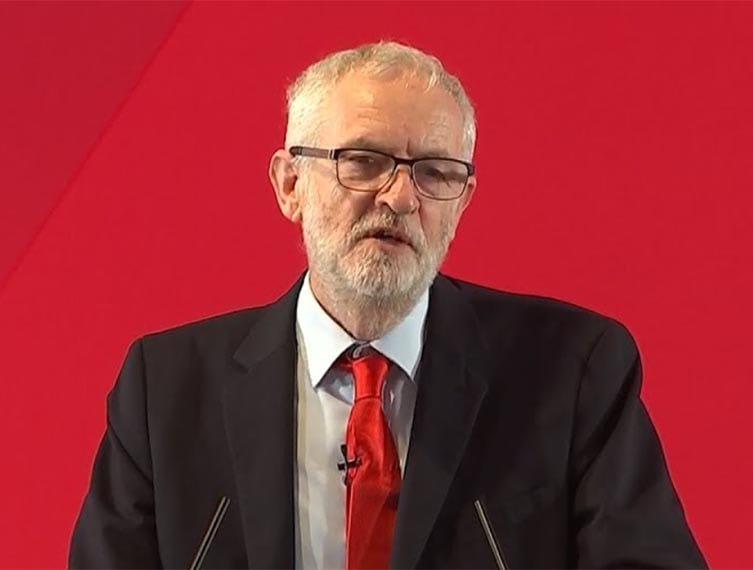The Labour Party’s manifesto for ‘real change’ – Sector response

The Labour Party has published their general election manifesto ‘It’s time for real change’.
National Education Service
Education makes our economy stronger, our society richer and our people more fulfilled. Whether it is businesses finding people with the right skills, a tech start-up making our economy more dynamic or more people in better paid work and able to contribute to public services, we all benefit from an educated society.
But education isn’t just vital to our economy – it lets people develop their talents, overcomes injustices and inequalities and helps us understand each other and form social bonds.
The Conservatives have starved our education system of funding, transferring costs onto students, staff and communities. They have lost sight of its value.
From cutting budgets of schools, disproportionately in deprived areas, to closing Sure Start centres and underfunding support for those with special educational needs and disabilities, Conservative policy has meant those in most need have lost out.
That’s why our National Education Service will be at the heart of Labour’s plan for real change. It will provide free education for everyone throughout their lives and will nurture every child and adult to find a path that’s right for them, by promoting all types of learning, skill and knowledge – technical, vocational, academic and creative.
Early Years
Early years education is vital to children’s development. Children from disadvantaged backgrounds start falling behind their peers before they even start school. Early years education also helps parents – usually mothers – by providing a bridge between maternity/parental leave and school.
But the current system falls far short of what is needed. One thousand Sure Start centres have closed since 2010, while the Tories’ so-called free childcare offer is desperately underfunded and excludes many of the most disadvantaged children.
We will reverse cuts to Sure Start and create a new service, Sure Start Plus, with enough centres to provide a genuinely universal service, available in all communities, focused on the under-2s.
Labour will radically reform early years provision, with a two-term vision to make high-quality early years education available for every child. We will also extend paid maternity leave to 12 months.
Within five years, all 2, 3 and 4-year- olds will be entitled to 30 hours of free preschool education per week and access to additional hours at affordable, subsidised rates staggered with incomes. Labour will also work to extend childcare provision for 1-year-olds and to ensure that childcare provision accommodates the working patterns of all parents.
We will improve child development by transitioning to a qualified, graduate- led workforce. We value the experience of current early years workers, and will offer free training to the workforce to attain these qualifications on the job.
Achieving this vision will require significant investment. We will increase funding and end the fragmentation of the current system by funding providers directly, making things simpler and more sustainable for both parents and providers.
We will recruit nearly 150,000 additional early years staff, including Special Educational Needs Co-ordinators, and introduce a national pay scale, driving up pay for the overwhelmingly female workforce.
Maintained nursery schools provide a proven, high-quality service but they are under threat from Tory cuts. We will provide sustainable, long-term funding to secure their future.
Schools
Labour will make sure schools are properly resourced with increased long- term funding, while introducing a fairer funding formula that leaves no child worse off. We will invest to upgrade schools that have fallen into disrepair.
Labour’s funding settlement will ensure pupils are taught by a qualified teacher, that every school is open for a full five days a week, and maximum class sizes of 30 for all primary school children. We will also fund more non-contact time for teachers to prepare and plan.
Schools have faced years of budget cuts, leaving headteachers forced to beg parents for money for basic equipment. Despite promising to reverse their own cuts, the Tories latest funding announcement leaves 83% of schools still facing cuts next year.
Schools are being subjected to intensified testing, inspection, league tables and competition. These aren’t improving pupil achievement or narrowing the attainment gap, but are contributing to a growing teacher recruitment and retention crisis.
The narrowing curriculum is denying many children access to modern languages, arts and music, or technical and engineering skills that will be essential in a world shaped by climate change.
The academies system is over-centralised, inefficient and undemocratic. Parents, communities and even teachers are shut out of decisions about schools and vulnerable children are being let down. And there is no evidence that academies deliver better results.
The Conservatives have failed a generation of children with special educational needs and disabilities, who have endured years of cuts and chaos. Labour will provide the necessary funding for children with special educational needs and disabilities.
Labour will end the ‘high stakes’ testing culture of schools by scrapping Key Stage 1 and 2 SATs and baseline assessments, and refocussing assessment on supporting pupil progress.
We will introduce an Arts Pupil Premium to fund arts education for every primary school child. We will review the curriculum to ensure that it enriches students and covers subjects such as black history and continues to teach issues like the Holocaust. Pupils will learn both the science of climate and environmental emergency, and the skills necessary to deal with them.
We will end the fragmentation and marketisation of our school system by bringing free schools and academies back under control of the people who know them best – parents, teachers and local communities.
Under our system:
- Budget and day-to-day decisions will be transferred back to schools, overseen by an accountable governing body with elected representatives
- Responsibility for delivery of education and support for young people will sit with local authorities, they will manage and have responsibility for school places, including the power to open schools
- Oversight and coordination, including of continuous, peer-to-peer school improvement modelled on the London Challenge, will be carried out by regional offices of the
- All schools will be subject to a common rulebook, set out in legislation
We will replace Ofsted and transfer responsibility for inspections to a new body, designed to drive school improvement.
A new teacher supply service will tackle the waste of funds going to private supply teacher agencies thanks to the government’s failure to recruit and retain experienced teachers.
We will take action to end ‘off-rolling’, removing the perverse incentives for schools to let pupils fall out of the system, by making schools accountable for the outcomes of pupils who leave their rolls.
We will properly regulate all education providers and reform alternative provision (AP) to ensure an excellent education is the right of every child, and improve the outcomes and life chances of some of the most vulnerable children in society.
We will ‘poverty-proof’ schools, introducing free school meals for all primary school children, encouraging breakfast clubs, and tackling the cost of school uniforms.
We will bring back the School Support Staff Negotiating Body and national pay settlements for teachers.
We will close the tax loopholes enjoyed by elite private schools and use that money to improve the lives of all children, and we will ask the Social Justice Commission to advise on integrating private schools and creating a comprehensive education system.
Further Education and Lifelong Learning
With automation and the Green Industrial Revolution bringing major changes to industry, it is more important than ever that people have the opportunity to retrain and upskill throughout their lives.
Under the Tories, adult education has undergone 10 years of managed decline. England already faces a shortage of people with higher-level technical qualifications, and demand for these skills will only grow as we create new green jobs.
Instead of investing in people to prepare them for the jobs of the future, the Conservatives have slashed funding and cut opportunities.
Labour will ensure fairness and sustainability in further education, aligning the base rate of per-pupil funding in post-16 education with Key Stage 4, providing dedicated capital funding to expand provision and bringing back the Education Maintenance Allowance as the Welsh Labour Government has done.
Labour will make lifelong learning a reality, giving everyone a free lifelong entitlement to:
- Training up to Level 3
- Six years training at Levels 4-6, with maintenance grants for disadvantaged
We will introduce additional entitlements for workers in industries that are significantly affected by industrial transition.
We will make sure training delivers the right skills by giving employers a role in co-design and co-production of qualifications.
We will restore funding for English for Speakers of Other Languages (ESOL) courses and restore and expand the Union Learning Fund, giving workers the right to accrue paid time off for education and training.
Labour will reform existing careers advice, working towards an integrated information, advice and guidance system that covers the entire NES.
We will reverse the fragmentation and privatisation of further and adult education, incorporating it into a single national system of regulation that functions for education as our NHS does for healthcare provision.
Higher Education
Under the Tories, universities are treated as private businesses, left at the mercy of market forces, while top salaries soar and students pay more for less. Tuition fees have trebled and maintenance grants have been scrapped, leaving the poorest graduates with an average debt of £57,000.
Labour will end the failed free-market experiment in higher education, abolish tuition fees and bring back maintenance grants. We will fundamentally rethink the assessment of research and teaching quality, and develop a new funding formula for higher education that:
- Ensures all public HE institutions have adequate funding for teaching and research.
- Widens access to higher education and reverses the decline of part-time learning.
- Ends the casualisation of staff.
We will transform the Office for Students from a market regulator to a body of the National Education Service, acting in the public interest.
We will introduce post-qualification admissions in higher education, and work with universities to ensure contextual admissions are used across the system.
Jeremy Corbyn, Leader of the Labour Party, speaking at the launch of Labour’s manifesto in Birmingham, said:
“Thank you for coming to help launch our manifesto and a special thanks to Birmingham City University for hosting us in this wonderful building.
“Labour’s manifesto is a manifesto of hope.
“A manifesto that will bring real change.
“A manifesto full of popular policies that the political establishment has blocked for a generation.
“But you can’t have it.
“At least, that’s what the most powerful people in Britain and their supporters want you to believe.
“Over the next three weeks they are going to tell you that everything in this manifesto is impossible.
“That it’s too much for you.
“Because they don’t want real change.
“Why would they? The system is working just fine for them. It’s rigged in their favour.
“But it’s not working for you.
“If your wages never seem to go up and your bills never seem to go down, if your public services only seem to get worse, despite the heroic efforts of those who work in them, then it’s not working for you.
“And that’s why so many people in Britain have given up on politics.
“That’s why you hear people say about politicians: “They’re all the same.”
“Well not any more. Because this party, this movement, this manifesto is different.”
 Chief Executive of AoC, David Hughes said:
Chief Executive of AoC, David Hughes said:
“The Labour manifesto offers a strong package for the future, with the potential to make real change, for business, for individuals, and for communities. Their commitment to raising the base rate for 16-19 funding, offering a boost for adult and life-long learning, and the reintroduction of an education maintenance allowance, provides a vision for a society that has an ambitious, people-centred education and skills system at the heart of it.
“It’s great to see yet another political party recognise that for the biggest questions facing our country, colleges are a vital part of the answer. Colleges transform the lives of 2.2 million people each year, in every part of the country, and Labour’s further education offer would help them to do even more.
“AoC is asking all parliamentary candidates to sign up to the following five priorities:
- A new place for colleges with a streamlined regulatory regime which gives colleges a protected title that places colleges at the heart of the national infrastructure.
- Ensure no young person is left behind – colleges must be funded to offer engaging and motivating programmes for young people which also improve English and maths and address high needs.
- Commit to investment and long-term funding for colleges that strengthens institutions and develops the professional workforce
- A new lease of life for lifelong learning – that boosts opportunities for adults and apprentices across the country.
- Equal access to education and training – Maintenance support, increase in bursary fund, transport discounts, child benefit and mental health support for people from low income families.”
 Association of Employment and Learning Providers chief executive Mark Dawe said:
Association of Employment and Learning Providers chief executive Mark Dawe said:
“AELP’s wish to see the needs met of the ‘forgotten 50%’ of school leavers with few or no qualifications has been answered by Labour’s commitment to a free entitlement for training up to level 3 and we welcome it very much. In a post-Brexit Britain with more controls on inward migration, implementation of this policy will be absolutely necessary and the support for higher level skills is another positive proposal. Apprenticeship delivery has a key part to play in improving skills at all levels and we would be happy to work with a new government to see how reform of the levy can make a real difference. However we have repeatedly said to Labour, the Liberal Democrats and other bodies that allowing the levy to pay for other forms of training would be premature, especially when current demand for apprenticeships by employers means that the levy is now being overspent.
“We are really pleased to see in Labour’s manifesto a promise to reform careers advice because in England there are fragmented and duplicated initiatives which frankly waste a great deal of taxpayers’ money. Government, employers and education and training providers should be working together in going into schools to make pupils of all abilities more aware of the vocational options that are available to them when too many successful and high earning apprentices still tell us that that they never heard about apprenticeships at school.”
 Kevin Courtney, Joint General Secretary of the National Education Union, said:
Kevin Courtney, Joint General Secretary of the National Education Union, said:
“This manifesto shows that Labour understands the serious problems facing education and facing children. Their promises include credible plans to relieve the heavy pressures on staff and to lift children out of poverty. Children only get one chance at education. The National Education Union welcomes Labour’s fresh vision for an education system that puts children first and foremost.
“The NEU asked each party to value education and make pledges on funding and the Labour party has met our tests on funding. We think the promise to stop the cuts and instead to invest in education will command voter support because parents want qualified and specialist teachers, value teaching assistants, worry about increasing class size, and expect high quality support if their child has special educational needs and disabilities.
“Teachers will be relieved to hear that the education funding pledges in the Labour manifesto match the demands of the School Cuts coalition. Our analysis of the Labour announcement shows that Labour will reverse the cuts but also, importantly, deal with the historic underfunding in many areas of this country. This is evidence-based funding which will mean more children reach their potential. Labour are in touch with real families’ daily concerns and the ways in which education cuts have harmed children. We welcome the £900 million for free school meals in primary which would address child hunger and support children to eat healthy food for lunch.
“The NEU is excited to see the value placed on child wellbeing, through the commitments on much more child mental health support and measures to tackle poverty and improve families’ living standards.
“Labour’s proposals can make the job of teaching more manageable and fulfilling by removing the discredited and divisive inspection system. These plans signal a different approach – one that promises to give teachers the conditions they need to be able to help every child meet their potential. The NEU welcomes the break with the misguided political mantra of competition and academisation. A national education service based on inclusion, co-operation and integrated services will improve outcomes for children and reduce the inequality gaps.
“Labour are showing courage in challenging the takeover of community schools by unaccountable academy providers. The break-up of the education service has produced record numbers of children and young people suffering from stress and with unmet mental health needs.
“Teachers will welcome the forward-thinking proposals to replace Ofsted with an intelligent accountability system, one which offers support to schools instead of labels.
“Education for England’s primary children is among the most test-dominated in the world and brings with it unacceptable levels of stress and unhappiness. Ending primary national testing will boost engagement for young children, help teachers address individual needs flexibly and ensure primary children acquire a love of learning and the skills to thrive in secondary.
“Labour’s manifesto demonstrates an understanding that schools alone cannot counter the drastic and long-lasting impacts of poverty and class inequality in wider society. We welcome Labour’s proposals to end child poverty, tackle the housing crisis, create good, well-paid and sustainable jobs, and kick-start the economy. The exciting announcement to boost support for school uniform costs would immediately help children escape the shame caused by poverty. The £175 million for arts pupil premium would help use the power of creative subjects to change children’s lives and provide a wider range of cultural opportunities to more children.
“We don’t tell people who to vote for, but the NEU is asking each and every voter to think carefully about education when casting their vote.’’
 Andrew Willis, Head of Legal at employment law consultancy Croner:
Andrew Willis, Head of Legal at employment law consultancy Croner:
“As promised, Labour has delivered a manifesto that represents significant changes to current employment law provisions.
“Remember that even a Labour victory does not mean that we would certainly not see all of these pledges happen in the space of a week. Overall, while this manifesto certainly gives us a lot to think about, employers will have some time to prepare for it. Should Labour win in December, employers would be wise to keep up to date on all legal developments going forward. “
James Kewin, Deputy Chief Executive of the Sixth Form Colleges Association said:
“The Labour Party manifesto makes a very welcome commitment to Raise the Rate of funding for sixth form students and provide dedicated capital funding to expand provision – two of the recommendations in the SFCA election manifesto . As young people are now required to participate in education or training until the age of 18, there is no justification for the sharp reduction in education funding at the age of 16. Labour is also right to prioritise a capital expansion fund – we estimate an additional 260,000 16 to 18 years will be participating in education by 2028 – so preparing for this demographic increase is a sensible step. The combination of additional revenue and capital funding alongside an improved student support offer will be welcomed by our sector”.











Responses